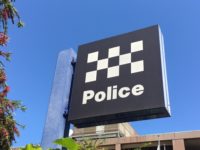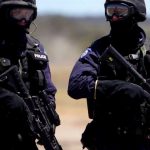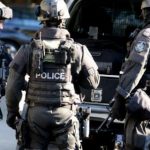Coroner Criticises Police ‘Shoot to Kill’ Policy

South Australia’s Deputy Coroner, Anthony Schapel, has criticised the policy of police to shoot persons who pose “high-risk threats” in the torso, suggesting each situation should instead be assessed and killing used only as a measure of last resort.
During the inquest into the shooting death of a 50-year old livestock farmer in 2015, Deputy Coroner Mr Schapel noted the armed man was shot dead from a distance by a marksman who possessed the expertise to hit other parts of the man’s body, and that in those circumstances, shooting to kill may not amount to reasonable force.
The inquest
Alexander Kuskoff was shot dead by an officer of the elite Special Tasks and Rescue (STAR) after a five hour standoff in September 2015.
The farmer fired 37 rounds before being shot twice by the officer, who was positioned 141 metres away.
Mr Schapel expressed the view that the state’s police should consider a “policy of avoidance of extremity shooting” where there is no immediate threat to life, rather than continue with their present policy of shooting to kill. He stated that the alternative policy:
“… might well give rise to an appropriate and lawful defensive response appropriate in many cases”, adding that “… there may be occasions in which the shooting of a person with the torso as a target, with an accompanying intention to kill, will not be regarded as necessary and reasonable or be seen as a proportionate response to the threat posed by that person.”
“Whether it is so will naturally depend on all of the circumstances confronting the particular officer — this should be borne in mind by police in the field”.
Having said that, the Deputy Coroner refrained from criticising the officer who took the fatal shot, acknowledging that he was only complying with policy. He noted that Mr Kuskoff’s shots were indiscriminate and never “aimed” at police or anyone else, that police were behind cover and that this may given a “seasoned marksman” the opportunity to fire shots aimed at the man’s extremities.
It’s not how it works
The Deputy Coroner has been criticised for his remarks on the basis that it is extremely difficult in highly-stressful situations to accurately assess the level of threat, and unrealistic to expect any officer – including a seasoned marksman – to take aim at anything other than the largest part of the body.
To shoot towards “extremities” increases the likelihood of missing the target, exposing officers and others who may be in the area to the dangers of the subject becoming desperate and even more dangerous.
The situation in New South Wales
In our state, the general rule is that police must apprehend an imminent threat of danger to life or serious injury before they can use lethal force.
However in 2015, the NSW Police Force adopted a shoot to kill policy where they were of the view that a terrorism situation was occurring.
In 2017, the state government enacted the Terrorism Legislation Amendment (Police Powers and Parole) Act, which gave police officers shoot-to-kill powers during an “evolving threat of terrorism”.
The 2017 law which permits officers to use lethal force if they deem it “reasonably necessary” once the police commissioner declares that a terrorist act is occurring, even if there is no imminent risk to life.
Lethal force can be used, for example, to “prevent or terminate” the “unlawful deprivation of liberty.”
The legislation gives officers immunity from criminal prosecution if they kill people in these situations, even if it turns out that the officers were negligent, or that the killings were unnecessary or undertaken in error.
And if an officer does apply lethal force in these circumstances, they don’t “incur any criminal liability for taking” such an action.
Mental illness
In 2013, the Australian Institute of Criminology released a released a report which found that 42% of the 105 people shot dead by police between 1989 and 2011 suffered from significant mental health conditions.
This prompted calls for officers to undertake further training in how to deal with mentally ill people, and for mental health professionals to accompany police to incidents where people are acting irrationally – in order to assist police in trying to diffuse the situations.







